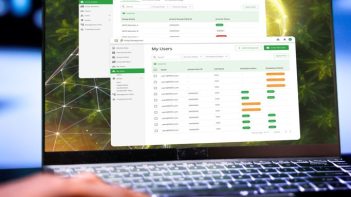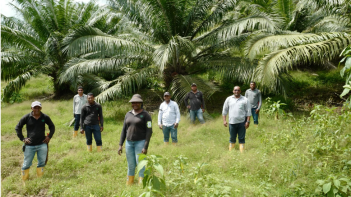• Updated on 9 September 2021 •
In March 2020, the Roundtable on Sustainable Palm Oil (RSPO) Secretariat issued memos to all its accredited Certification Bodies (CBs) on the conduct of audits against the RSPO P&C and RSPO Supply Chain Certification (SCC). Further to that, on 25 Aug 2020 the RSPO Secretariat published a Contingency RSPO Audit Procedure which will be applicable when force majeure (such as pandemics, natural disasters, civil unrest, etc.) prevents the audit team from conducting field verifications. However, the CB shall in their best position strive to ensure that an on-site audit (by the CB Audit Team/Audit Facilitator) be conducted.
Given the persisting uncertainty surrounding the Covid-19 pandemic, travel restrictions and CH policies disallowing visitors to enter their premises are making on-site audits difficult to be conducted, even when palm trace license validity has been extended up to 24 months. This might pose credibility risks to the RSPO certification process whereby the CBs are not able to enter sites of the Unit of Certification to perform on-site audits.
Taking this into consideration, and applying only to genuine cases, RSPO will allow further license validity requests for up to 33 months (12 months original license period + 12 months of ongoing extended license + 9 months of new further time extension = 33 months) and will be provided on a case to case basis. For such situations, when submitting the license extension request, the CB shall provide:
- Evidence of Official Statement/Announcement from the local authority for any travel restriction;
- CB policy(ies) restricting the auditor to travel for audit; and/or CH policy(ies) restricting the visitor from entering their premise;
- Other supporting type(s) of evidence to justify the limitation of the audit team movements to perform an on-site audit (if any)
The decision to approve/deny the license extension request is solely at the RSPO Secretariat's discretion. For approved cases (extension of license validity for up to 33 months), the CB is allowed to combine the 2020 and 2021 audits when on-site audits were conducted. However, the following measures shall be fulfilled by the CB when performing an on-site audit:
- The CB shall apply a HIGH RISK multiplier for the sampling calculation as explained in 5.7.3 and 5.7.4 of the RSPO Certification Systems for the P&C and ISH Standard, whereby estate to sample(s) = (√y) x (2.0), where y is the number of estates.
- For units that have four (4) or less estates, all estates shall be audited and the audit intensity shall be increased to cover the previous years’ performance (i.e., sites, records, interviews: complaints/grievance, environmental, safety and health, labour issues, stakeholders input, etc.).
- Where the HIGH RISK level has been implemented in the existing sampling, no additional requirements for sampling, but audit intensity shall be increased to cover the previous years’ performance (i.e., sites, records, interviews: complaints/grievances, environmental, safety and health, labour issues, stakeholders input, etc.)
- Estates and/or scheme smallholders in the selected sample shall include, but not be limited to, locations of potentially greater environmental and social risk, and any perceived risks relating to the current activities being undertaken (e.g., replanting or expansion).
- For ISH (ASA/RC in MS B phase), the CB shall apply a HIGH RISK multiplier for the sampling calculation as explained in 6.4.5 of the RSPO Certification Systems for P&C and ISH standard, whereby estate to sample(s) = (√y) x (2.0), where y is the number of group members.
- The sampling methodology shall also take into account the objective of selecting a representative sample in terms of the site diversity (i.e., range of sizes, type of terrain, location, etc.)
- To accommodate the increase in sampling and audit intensity for the previous year’s performance, the CB should increase the allocated mandays to facilitate the additional audit samples and/or audit intensity.
- The CB shall ensure that the reporting data of actual production and sold volume are covered from the last reporting period (as of the last on-site audit) until the next on-site audit took place. The data shall be reported as per the following template below.
For example, data reported during the last onsite audit (carried out in Jan 2019) was for the period from December 2017 until November 2018. The subsequent on-site audit was carried out in April 2021, thus the reporting period for this data should cover from December 2018 up to March 2021 (i.e., 28 months).
|
Description |
Reporting Period: MM/YY to MM/YY |
||
|
CSPO (MT) |
CSPK (MT) |
||
|
Certified Volume (MT) *following previous year’s approved volume |
|||
|
Actual Production during reporting period (MT) |
|||
|
Actual Sold Volume – RSPO Certified (MT) |
IP |
||
|
MB |
|||
|
Actual Sold Volume – Other schemes (MT) |
|||
|
Actual Sold Volume – Conventional (MT) |
|||
|
TOTAL Actual Sold Volume |
-
In case Recertification falls within the Contingency RSPO Audit Procedure (Audit Scenario 4), the CB shall treat the on-site assessment as a full recertification process as stated in the RSPO Certification System 2020. The new certification cycle (5 years) shall follow the new certification decision date made by the CB.
-
In case no on-site audit (by the CB Audit Team/Audit Facilitator) is conducted within the period of license validity up to 33 months, no further license extension will be approved by the RSPO Secretariat.
Should you have any further queries, please do not hesitate to contact: [email protected]
Keep reading

Access into prisma

Updated Trace Function in prisma

Call for Expression of Interest: Independent Investigation of a Complaint

Latin American Smallholders, Key Global Brands Gather in Peruvian Amazon to Advance Sustainable Palm Oil

RSPO Forum for Members and Certification Bodies 2025: Strengthening Capacities and Building Bridges with RSPO Members

From Violence to Prosperity: Cultivating Sustainable Palm Oil in San Pablo, Colombia

Palmas de Tumaco: Enduring, Trusting, and Transforming in Colombia’s Pacific Coast
Carry Over Credits for Certified Independent Smallholder Groups




